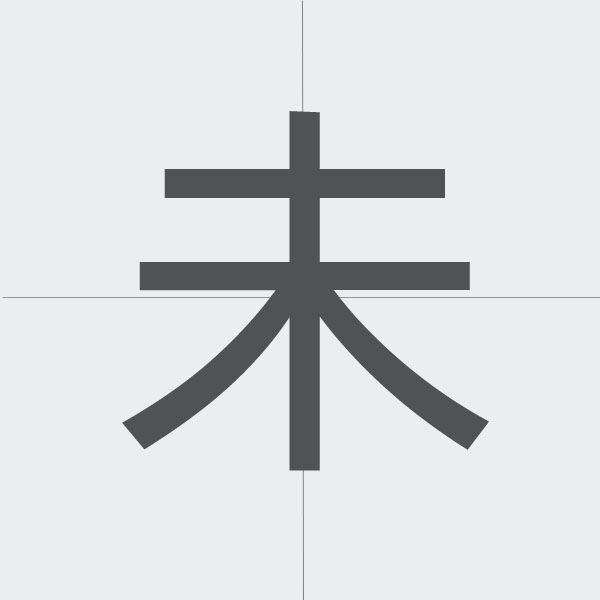
The Kanji: 未 (Mi)
The kanji 未 (read as mi) carries the core meaning of "not yet" or "immature." It visually resembles the kanji for "tree" (木), but with a longer top horizontal branch. This symbolizes a tree that is still growing, with its branches not yet fully developed—hence the concepts of "not yet" finished and "immaturity."
Common Words & Example Sentences
1. 未来 (mirai)
Meaning: Future. Literally, the "not-yet-come" time.
Example Sentence: ロボットは未来の技術の鍵です。
(Robotto wa mirai no gjutsu no kagi desu.)
"Robots are a key technology for the future."
2. 未定 (mitei)
Meaning: Undecided or not yet fixed.
Example Sentence: 会議の日時はまだ未定です。
(Kaigi no nichiji wa mada mitei desu.)
"The date and time of the meeting are still undecided."
3. 未熟 (mijuku)
Meaning: Inexperienced or unripe.
Example Sentence: 私はまだ日本語が未熟です。
(Watashi wa mada Nihongo ga mijuku desu.)
"My Japanese is still immature (inexperienced)."
4. 未 (mi)
Meaning: Used directly to mean "not yet."
Example Sentence: その映画は私は未だに見ていない。
(Sono eiga wa watashi wa imada mite inai.)
"I have not yet seen that movie."
In summary, 未 is a fundamental kanji expressing a state of incompleteness, ranging from time (未来) to development (未熟) and decisions (未定).